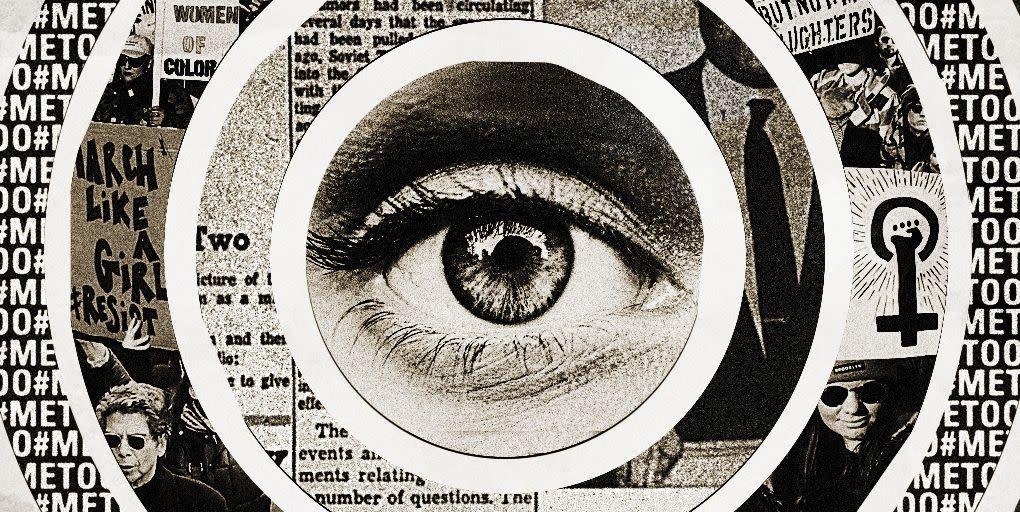New Releases Like 'She Said' and 'Know My Name' Speak Truth to Power

Of the many important revelations to emerge in Jodi Kantor and Megan Twohey’s groundbreaking and unputdownable She Said (Penguin), the most compelling is that, above all, the Harvey Weinstein story was the result of a brave collaboration between Weinstein’s victims and the journalists, activists, and good citizens who came forward, despite threats to their livelihoods and reputations.
For any who believe that reporters are cynical about the business of journalism, Kantor and Twohey stand as proof of its integrity. Acutely aware of the strong-arm tactics Weinstein was willing to deploy to beat back accusers and the media, they ran toward the fire. In the course of their yearlong investigation, Weinstein hired former Israeli intelligence operatives to try to halt their probing.
They were contacted by so-called women’s advocates planted by Team Weinstein to hoodwink Kantor and Twohey as a ploy to sabotage their work and undermine their victims’ stories (they didn’t bite). They traveled the world to connect with ex-employees who were terrified to speak up. Time and again, they thought they’d persuaded someone to go on the record, only to have them change their mind, fearing the consequences.
She Said is irrefutable evidence of how hard it is to hold a rich and powerful man accountable. Step by step, it documents the determination, shoe leather, and outright courage required. But
perhaps the most profound takeaway is how women banded together to finally bring Weinstein down, with Ashley Judd leading the charge: “I have to know the hill on which I’m willing to die,” Judd told a group of Weinstein victims and Brett Kavanaugh accuser Christine Blasey Ford, who’d gathered at Gwyneth Paltrow’s Brentwood, California, home to share their stories. “The equality of the sexes is that hill for me.” —Leigh Haber
The survivor at the center of the Stanford rape case chronicles her journey in a harrowing memoir.One night in January 2015, a brutal crime played out in the shadows of leafy, affluent Palo Alto, California. Caught in the act of sexually assaulting an unconscious woman next to a dumpster, the attacker, Brock Turner, was a lantern-jawed, All-American swimmer and Stanford University freshman. In the drawn-out legal proceedings that followed, the 22-year-old passed out beneath him was rechristened Emily Doe. Now, with Know My Name (Viking), Chanel Miller takes back her identity in a chilling and ultimately triumphant memoir that reveals how she has moved on—from victim to writer and activist.
The UC Santa Barbara graduate had joined her sister and friends for a girls’ night, dropping by a Stanford fraternity party, where Miller blacked out after numerous drinks. She awoke in a hospital, confused, pine needles in her hair and bruises on her arms, with nurses swabbing her vagina. Turner’s family hired a team of blue-chip lawyers, who fought Miller at every turn through a bureaucratic maze of innuendo and privilege. (Turner’s father complained that his son’s future was jeopardized by “20 minutes of action.”) The prosecutor, a clear-eyed and compassionate woman, warned Miller: Brock will get to write the script. When Turner was convicted but sentenced to only six months in county jail and three years’ probation, it seemed he had.
But here Miller flips that script, assembling a collage of court transcripts, personal history, and dawning fierceness. In a court statement that went viral, Miller wrote: “This ugliness was something I never asked for.” And yet, once she did raise her voice, “an incredible thing happened. The world did not plug up its ears, it opened itself to me.”
Know My Name evokes a woman whose spirit hasn’t been broken—a study in what it means to strike back, not in revenge, but in reclamation.
For more stories like this, sign up for our newsletter.

